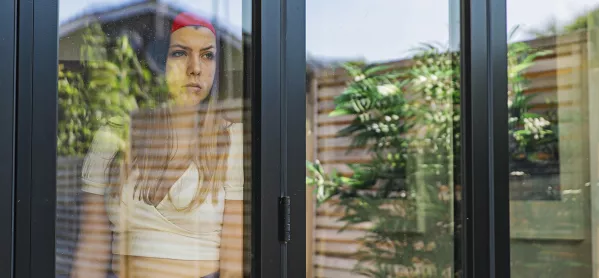- Home
- Analysis
- Specialist Sector
- IB chief: Why we’re reviewing our wellbeing impact on pupils
IB chief: Why we’re reviewing our wellbeing impact on pupils

At the beginning of the year, I was contacted by a recently graduated International Baccalaureate (IB) student, who had been encouraged by her teacher to reach out on a topic that they both felt strongly about.
The student had been gathering feedback from IB students regarding their experiences relating to their wellbeing during their studies and wanted to share their results with us.
Although the survey was not undertaken scientifically, it nevertheless raised a lot of valuable points. The full results are not public, but suffice to say it strengthened my belief that learning and wellbeing are strongly interconnected.
Emphasising wellbeing does not have to be in conflict with the rigour of a programme. They are aims that can be met simultaneously.
Why wellbeing matters more than ever
Sometimes, and I have seen a lot of such cases during my career in education, a student’s wellbeing gets worse because they have higher capabilities than what is being demanded of them.
You can also slide into a negative trend in your learning path by getting frustrated by tasks and targets that are too easy.
Of course, wider events can have an impact, too. The pandemic and the extended lockdowns meant the wellbeing of students, teachers, parents, and the whole school community has been deeply affected.
Where we have the data - for example in the UK - we have seen a major spike in cases as teenagers and even younger people struggle with what they have been through.
And then, just as we began to think about how to deal with the challenge of the post-Covid recovery, another global crisis crashed into our world: Russia’s invasion of Ukraine. This war destabilised education for millions of young people in the immediate vicinity of the fighting while proving deeply unsettling for many millions more around the world.
These two events are illustrative of the challenges facing anyone running a global education organisation as we move towards the end of the first quarter of the 21st century.
This is why I am determined that the IB - under my watch - must respond in two ways.
Ensuring learning and wellbeing work together
Firstly, we must focus on the flexibility of teaching and assessment. We must learn the lessons of Covid-19 - and how we used technology to adapt at an incredible pace - to ensure that students’ learning is not the first casualty of global crises.
The IB’s dedicated teams have already put in place previously unthinkable interventions for hundreds of Ukrainian students who, despite being refugees, have had some form of continuity of education.
It is also one of the reasons why the IB has been quick to announce a crisis framework, with resources to support the global school community, and the launch of a pilot to learn more about what a fully online diploma programme would mean.
Secondly, I am determined that, in this hugely troubled world, we are dutybound to do everything in our power to depressurise schooling: to think about the whole student, and the whole school community, not just curriculum models and exams.
Throughout its history, the IB has sought to be more than an exam board that provides schools with schemes of work and tests: we have tried to be a progressive force for good in education, one that challenges norms and thinks in the round about how we teach and how we assess young people.
This is why we have always put such stock on coursework and internal-marked work as part of our assessments. It’s also why we are so keen to encourage teamwork, creativity and curiosity in our schools and frameworks.
We don’t do this just because we think it makes for a better qualification; we do it because we believe it creates well-rounded young people with the skills needed to thrive and make a difference.
Reviewing our wellbeing impact
It has become clear that we must do more in this space. This is why I want my organisation to research and review the impact of our work on the wellbeing of young people.
We have already begun this work with the publication of a foundational framework on wellbeing in childhood and adolescence.
Based on these strong scientific foundations, the International Baccalaureate Organization is committed to working towards a comprehensive approach to wellbeing across all programmes and to finding new ways to support IB with this topic.
Starting July 2022, the IB research and design teams will launch a complex innovation project to support IB schools with wellbeing in their own context, which I hope starts a new conversation about adding rigour to this way of thinking.
The student I mentioned previously definitely lived true to the IB idea of making a difference for a better world. Ensuring the wellbeing of others was something that she felt so strongly about that she wants to continue down this path after her studies.
Education and schooling cannot be seen in isolation from what goes on beyond our school gates. It is our duty to do everything in our power to re-create educational settings that enable the holistic development of students.
Olli-Pekka Heinonen is the director-general of the International Baccalaureate
You need a Tes subscription to read this article
Subscribe now to read this article and get other subscriber-only content:
- Unlimited access to all Tes magazine content
- Exclusive subscriber-only stories
- Award-winning email newsletters
Already a subscriber? Log in
You need a subscription to read this article
Subscribe now to read this article and get other subscriber-only content, including:
- Unlimited access to all Tes magazine content
- Exclusive subscriber-only stories
- Award-winning email newsletters
topics in this article



